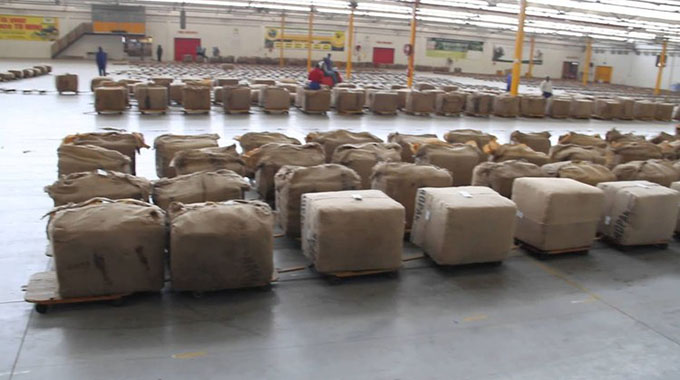
Though the opening date for this year’s tobacco marketing season is still to be announced, indications are that deliveries will start at least a month from now.
A month is not a long time, especially against a background where a number of issues need to be thrashed out among a cross section of players who have to reach consensus on sticking issues to avoid costly surprises and disruptions.
Deliveries last year hit a record of 258 million kilogrammes, after bettering the previous mark of 252 million kg.
Given that tobacco earns Zimbabwe around US$1 billion in export earnings annually, there is need to secure the future of tobacco production in Zimbabwe.
From the outset, it becomes paramount as well to stress the fact that there actually is a period during the course of the year when Zimbabwe is better able to meet its external obligations; thanks to tobacco.
In fact, the gold leaf, as tobacco is affectionately called, used to be Zimbabwe’s single largest foreign currency earner before being overtaken by gold a few years back.
Tobacco employs nearly 60 percent of workers in agriculture and is estimated to account for almost 11 percent of the country’s Gross Domestic Product (GDP), quite a huge contribution.
The industry creates limitless other job opportunities down the value chain — backward and forward linkages — including in manufacturing and transportation.
So, tobacco is no small crop. This is partly how dear it is to Zimbabwe.
Nonetheless, we get the feeling that despite it providing sustenance to hundreds of thousands of our citizens and the economy, the crop is at times treated with brazen carelessness; sometimes all for profits.
Last year, there was a chaotic start to the tobacco marketing season as farmers protested low prices and payment for most of their tobacco in local currency instead of getting a portion of it in hard currency like what happens to other exporters.
The net effect of that was the significant decline in the number of non-contracted growers from 45 711 farmers by 55 percent to 20 696 this year.
Contracted growers increased marginally though this year.
But the point is that the chaotic start to the season and a number of sticking issues may have been a major point that made some farmers drop the crop.
If these challenges are not resolved, chances are the number of growers will drop again and this has serious ramifications on the country’s ability to generate foreign currency next year this time.
The Reserve Bank of Zimbabwe (RBZ), Tobacco Industry and Marketing Board (TIMB), buyers and tobacco farmers’ associations need to sit down and agree in time on all issues of interest to stakeholders.
Most importantly, issues dear to the most important constituency; the farmers who toil day and night to produce the crop, include a system that guarantees fair prices, timing and of modalities payments and how much they get in forex for their tobacco.
It is easy to ignore the sensitivities of farmers given that a few know or appreciate how much sweat the farmers shed all year round to produce a crop, which then goes a long way to sustain the needs of a whole nation.
But it is also clear that failure to appreciate, act and address the farmers’ concerns, reservations, frustrations, pleas and demands could just jeopardise the future of tobacco production in Zimbabwe.
Most farmers used inputs bought with hard currency and it is disheartening that the crop eventually goes onto the market for a song.
The question that arises is: if the reason for the depressed market price was the poor quality of the crop, why is it that the same fetched lucrative price on the international market?
But this year, there are high hopes for positive prospects.
As we reported in our business and finance section of the newspaper, industry regulator, the Tobacco Industry and Marketing Board (TIMB) expects better prices this year.
TIMB chief executive Dr Andrew Matibiri said yesterday that currency changes introduced last year, specifically the switch from US dollar to Zimbabwe dollar at an exchange rate of 1 to 1, once affected prices.
This affected the amount of money buyers had, leading to low prices given to farmers, which many of them were not happy with and responded by dumping tobacco growing.
Farmers were also not happy with complicated procedures around the opening of foreign currency accounts and the stringent conditions for them to receive their entitlement of 50 percent payment of sales in hard currency.
Further, growers are ripped off by corrupt buyers and middlemen who connive to reject their tobacco over false quality issues, and then go behind the scenes to buy the condemned crop at low prices for resale.
We implore authorities to iron out all sticking issues over the next 30 days to ensure a smooth start to this year’s marketing season, as we are alive to the fact that most previous season opening days have been marred by all sorts of controversies.
